Back in 2012 I was on standby for a phone call from my friend, Kerry, who would tell me, this is it. Meet me at Debbie’s.
Debbie was the hairdresser who would shave all of the hair off of Kerry’s head. She would be bald. We all know what bald means. It means you’re sick.
Preparing to lose your hair to chemotherapy comes with a choice. As Kerry says, “Go bald in hunks and pieces or shave it off on your terms.” That’s it. You have options but in the end you will be bald, a progression you’re told will start to happen a few weeks after beginning chemo.
That your hair will just start falling out of your head is hard to believe and every bit as horrifying as having your teeth just start dropping out of your mouth. It was shocking to Kerry to believe it would happen to her but with the wig waiting at Debbie’s, Kerry started testing it. At work one day she showed a co-worker. “Look at this,” she said as she ran her fingers through her hair. But this time her hands came out holding two huge clumps. She was amazed. It was real. Her hair had finally let go. Kerry called me and 30 minutes later she was sitting in Debbie’s chair.
It’s an unbelievable moment, that pause when all of the preamble is done and there’s nothing left to do but start shaving. With the shaver poised in the air Debbie said, “I won’t cry if you don’t.” Kerry looked at me, the big crier, and said, “I won’t cry if you don’t.” I locked down every molecule of my being and said I’d try. With a look of steely resolve and a measure of disbelief on her face, Kerry turned back to Debbie. We all held our breath and then her hair fell to the ground.
That your hair will fall to the ground around you is not clinically significant when you are being treated for cancer. But when Kerry was told back in 2017 that she now had ovarian cancer after hitting the 5-year cancer-free mark for breast cancer, the first thing she thought about and the first thing out of her mouth was, “You mean I’m going to lose my hair again?” Her oncology surgeon’s response was, “Losing your hair is not clinically significant.” (Not an NLH surgeon.)
And yet there was a kind of disconnect in that statement that Kerry couldn’t quite square when her first thought wasn’t, I might die, or even I’m going to have to go through chemotherapy again. It was how very much she needed to hang onto her hair because when you’re bald you don’t get away from cancer. Ever. For month after month after month you face the message in the mirror that you are sick as you tape on your wig. Throughout the day a whole section of your brain is dedicated to worrying about whether your wig is straight, whether it looks real, if it will fall off. And then when you’re finally done with chemo and you want to celebrate and recover who you are, you still can’t because you’re bald for a long, long time after that while your hair grows back. And when it does come in long enough to get rid of the wig, it will likely come back weird, not like your old hair. Kerry’s naturally wavy hair grew back with a very tight curl, “chemo curl” as it’s called. Though she no longer had to wear a wig, now she had a classic “old lady” hairdo that was impossible to do anything with to make it more her.
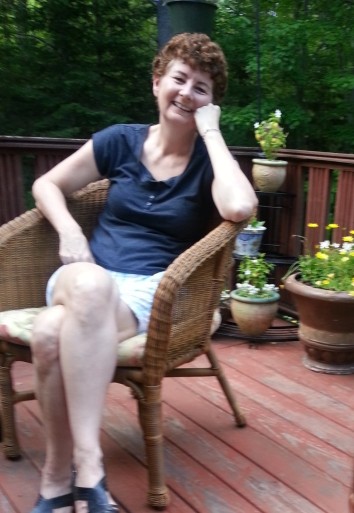
The truth is being bald is hard on your soul. After 4 months of chemo, 6 months waiting for her hair to grow out long enough to take off the wig and 12 months of cutting out the chemo curl while hoping her regular hair would return, Kerry finally felt like herself again. But during all the time cancer patients spend waiting to get their hair back, being sick becomes part of their identity accompanied by an inescapable, traumatizing message about their mortality. An exceedingly personal message for Kerry.
“My experience with cancer in my family is that it kills you,” says Kerry who lost her mother, father, a few aunts and uncles, and more recently her brother to the disease.
And the truth is that being bald puts an inordinate amount of stress on a person because it’s traumatizing. These days we all know how damaging stress to the mind is to the body and how important it is to minimize constant exposure to those stress hormones. Without hair, you are in constant fight or flight mode. Being in fight or flight makes it harder to heal. A full 8 years after losing her hair in 2012, it’s still hard for Kerry to integrate.
“It’s shocking to think, ‘I’m going to be bald!’ It is just shocking. It is so hard to accept. It is such a total loss of control over something that is such an important part of your identity and how you present yourself to the world every day.”
However, despite the diagnosis of ovarian cancer in 2017, being bald was behind Kerry because she remembered an article she’d read when she had breast cancer about a technique called cold capping that significantly reduces or eliminates hair loss.
Kerry became the first person at the Lafayette Cancer Center to cold cap. It not only saved every last hair on her head in 2017 but she was also able to keep more of herself in the midst of so much other loss. When the ovarian cancer recurred in 2019, she cold-capped again and, once more, kept her hair. And now, I’m so very heartbroken to say, Kerry’s cold capping again because the cancer has come back.
Cold capping has served Kerry so well you might think that all of the patients over at the Cancer Center would be taking advantage of this method considering how devastating it is for most people to lose their hair. In fact, Kerry remains the sole person to have been able to take advantage of this because it is undeniably labor intensive, expensive and requires a partner who can swap out the caps when they lose temperature. When the scalp cooling technology isn’t available as a service and an individual takes on the project of cold capping on their own, it involves picking up 50 pounds of dry ice the night before treatment and dividing it into bags to fill the 8 separate caps. The caps, like a soft batting helmet, are kept in the cooler overnight. The cooler is then brought to the treatment room in the morning and by that time they are at 50 degrees below zero F. They are individually warmed by the cold cap buddy to 25-35 below zero before being placed on the head and strapped down to fit snugly against the scalp. The cold cap buddy is responsible for getting each cap ready as they must be replaced every 20 minutes to ensure the scalp stays at that critically cold temperature that protects the hair follicles by restricting the blood flow to the scalp. And it’s not cheap. Just renting the caps each month cost Kerry $379 while the ice cost $42 each time.” On the other hand, the wig Kerry bought in 2012 cost $2000 though some of that was reimbursed by insurance.
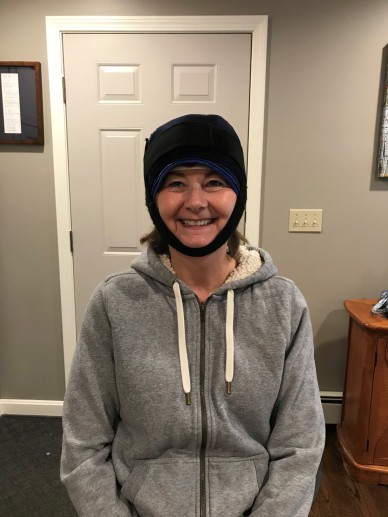
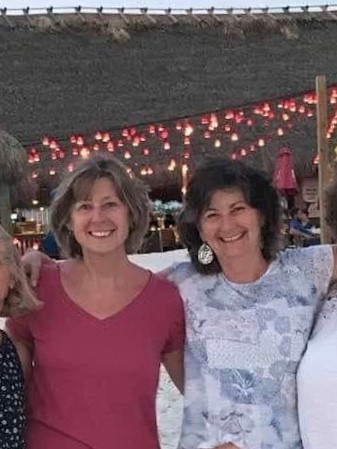
Kerry with Joyce, her cold capping buddy and sister, after 5 months of chemo in 2019
Though cold capping is not accessible for many people given the labor, the expense and the necessity of having a partner, that’s going to change sometime in the near future because the NLH Foundation, Lafayette Cancer Center staff members and a team of community members are seeing to it with the Hair Preservation Project. Kerry and her sister/cold cap buddy, Joyce, are two of those community members. The scalp cooling machines they will bring to the Center will take the labor and partner requirement out of the equation. Instead of all the cap swapping, the patient will simply sit under a hood connected to the cooling technology. And while there is a cost of around $2,200 associated with the treatment, the availability of scholarships will take the prohibitive expense out of the equation.
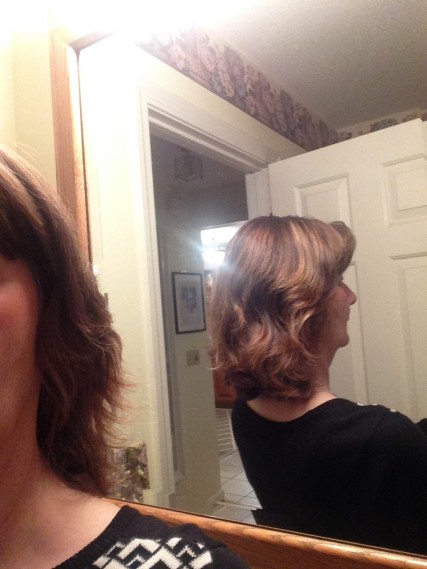
Kerry after cold capping with every last hair intact on her head.
Kerry talks about the significance of keeping your hair and the hair preservation project in this video, a project she’s passionate about and is so happy will be available soon to others because not having to deal with hair loss on top of the physical and emotional toll of cancer treatment is huge.
“Losing your hair gets dismissed as trivial, a triviality compared to your life,” says Kerry. “But hair carries so much meaning and has such an impact on us. I have total respect for those women who can just embrace their baldness and wear it almost as a badge of courage. I envy them that ability, but it was not how I wanted to present myself to the world. I did not want to look like a sick person. And as a cancer patient, when you get to keep your hair you get to control what you show. Disclosing your diagnosis is on your terms.”
But is hair really so trivial or does it actually have an impact on our health? We are learning all the time about aspects of our experience that have an impact on our health. Loneliness is now understood to be clinically significant. Social determinants of health are recognized as clinically significant. When being bald sends you a message about your mortality every single minute of the day, hair, too, may be more significant than it has seemed and very important to preserve. It’s a profoundly deep part of us and a part that cancer patients at the Lafayette Cancer Center are soon going to have the option of keeping.
The Foundation’s hair preservation project is closing in; it’s just $89,000 away from $250,000 goal to cover equipment costs and scholarships. If you’d like to offer your support to the project you can do that by making a regular donation or, as an employee, you also have the option of contributing some of your PTO. For more information contact Jenifer Lloyd at jlloyd@northernlight.org or 207.973.9628.
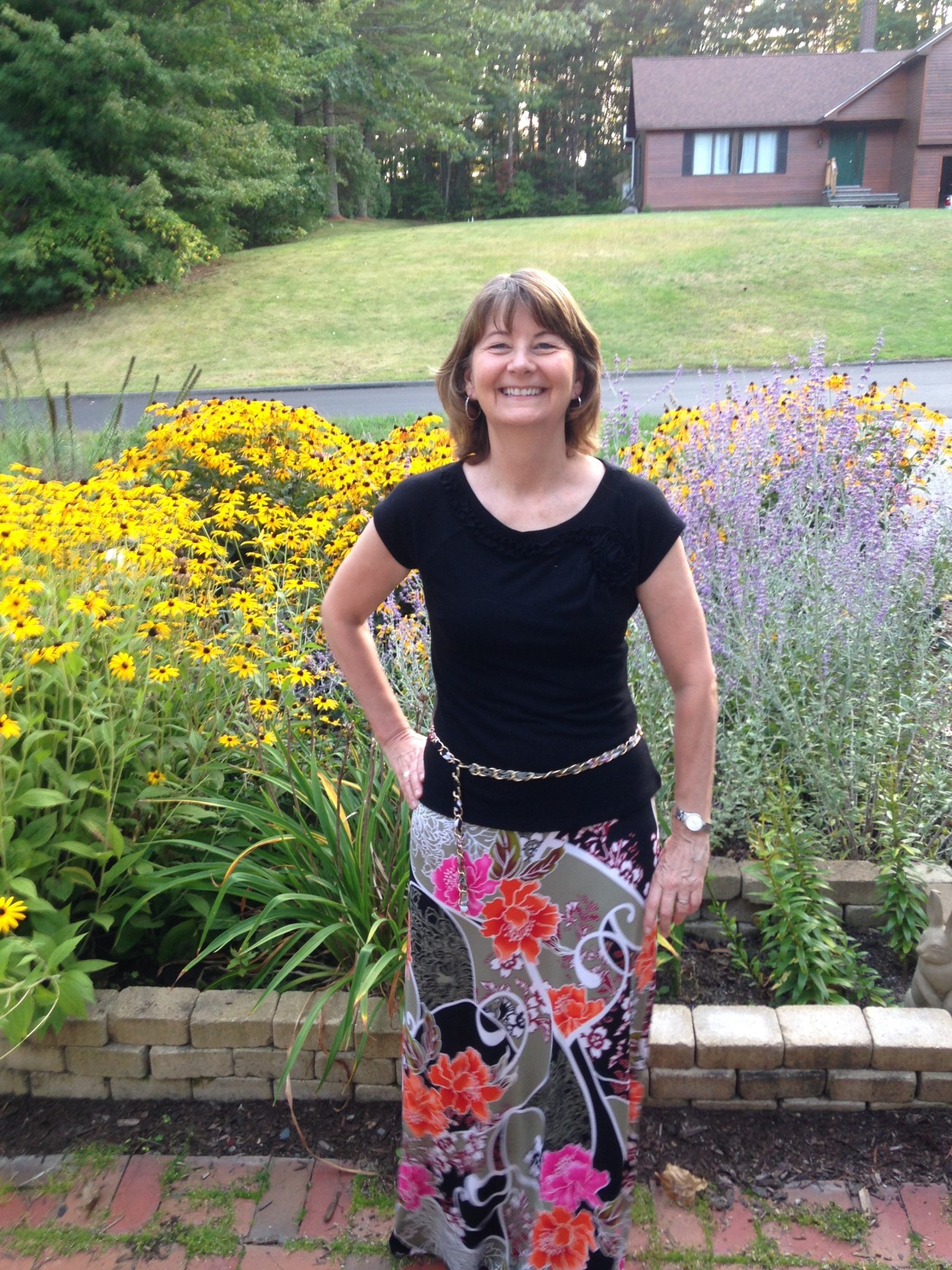
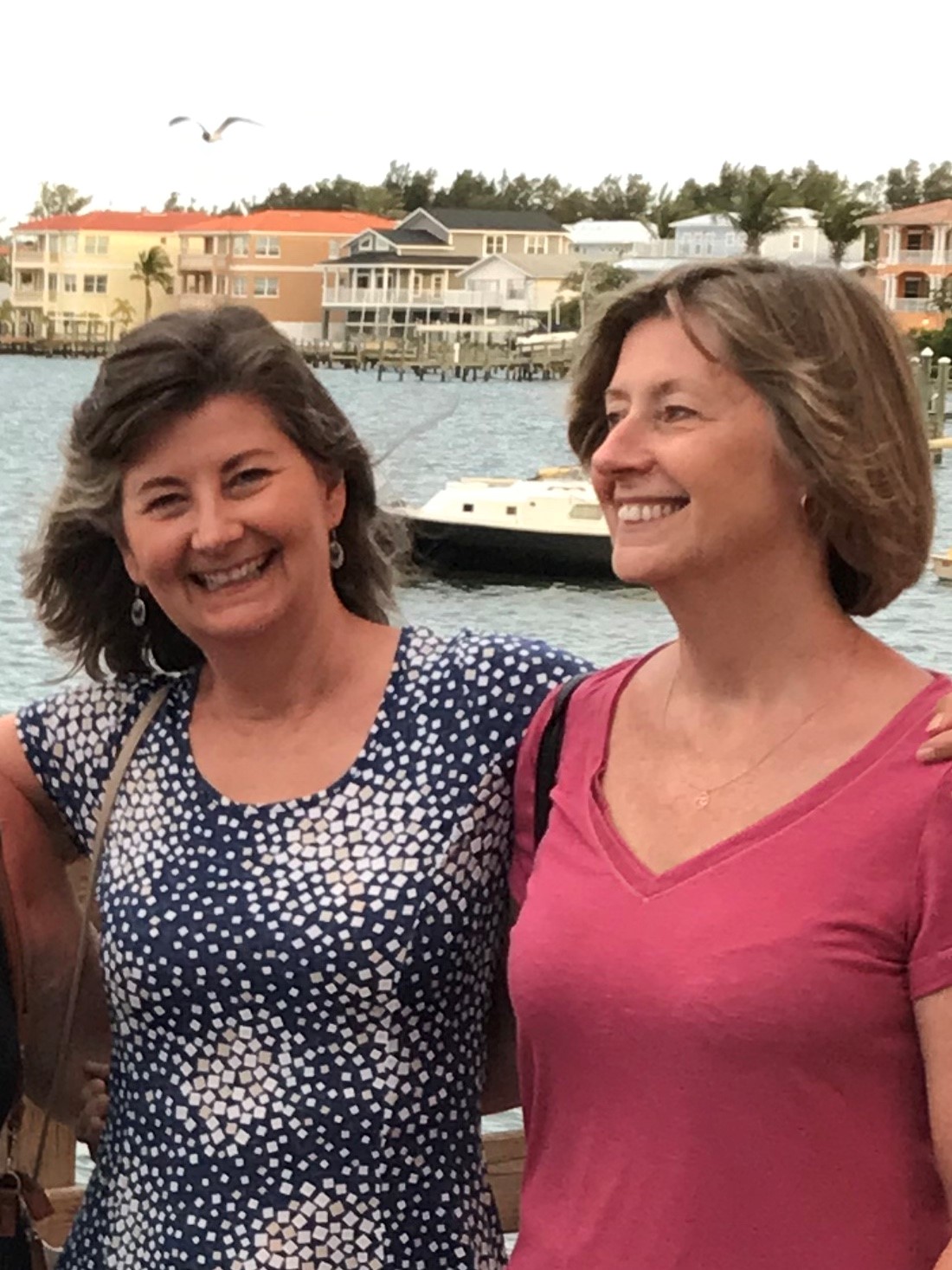
Kerry looks joyful in the bottom picture. I am grateful for a program that can bring comfort/joy to someone dealing with such a painful diagnosis.
LikeLiked by 1 person
Kerry is an amazing inspiration to us all.
LikeLiked by 1 person
Thank you for sharing this wonderful story and message. Each person’s journey is so personal and unique- understanding options to help through the journey is so important.
LikeLike